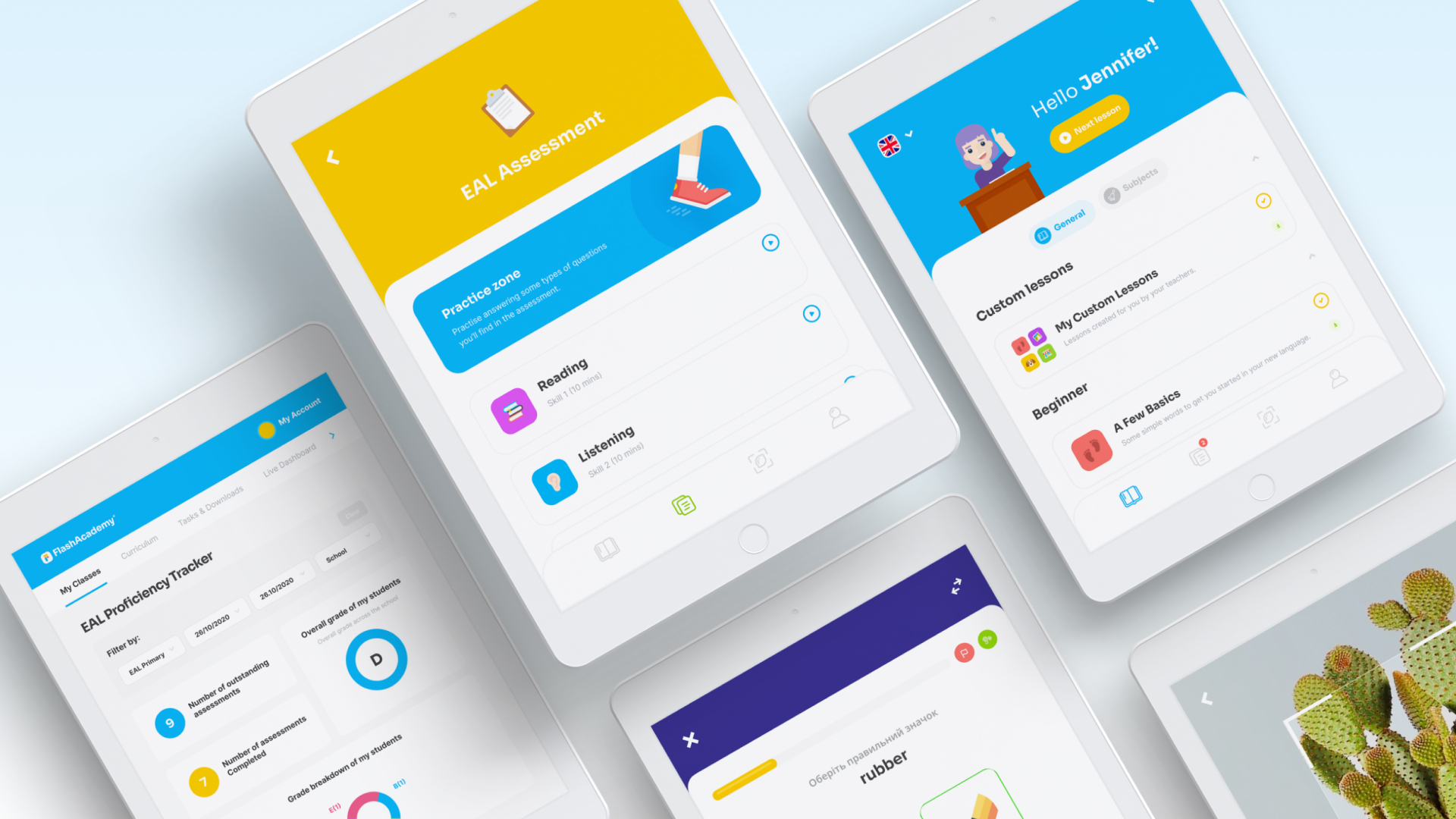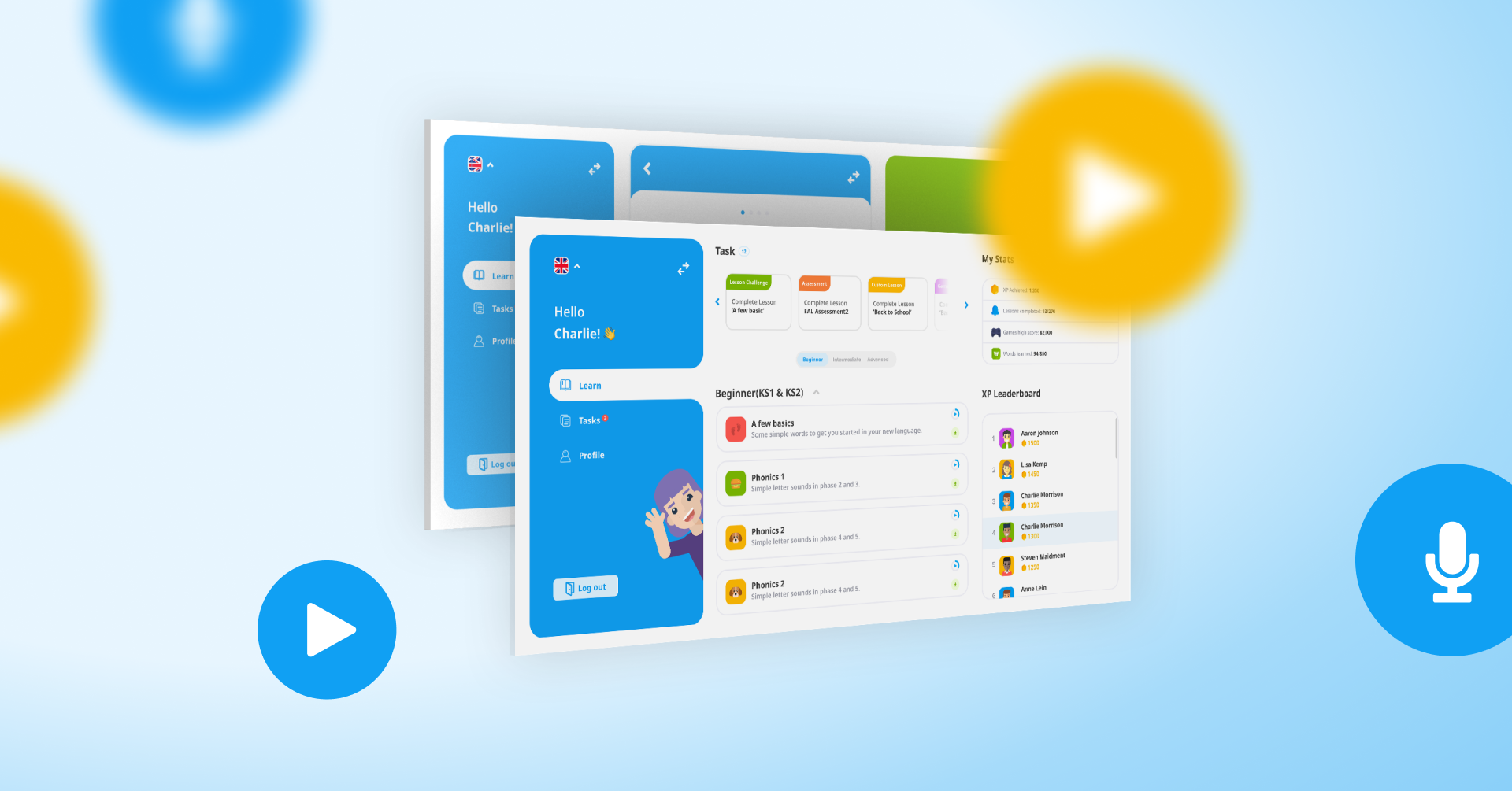
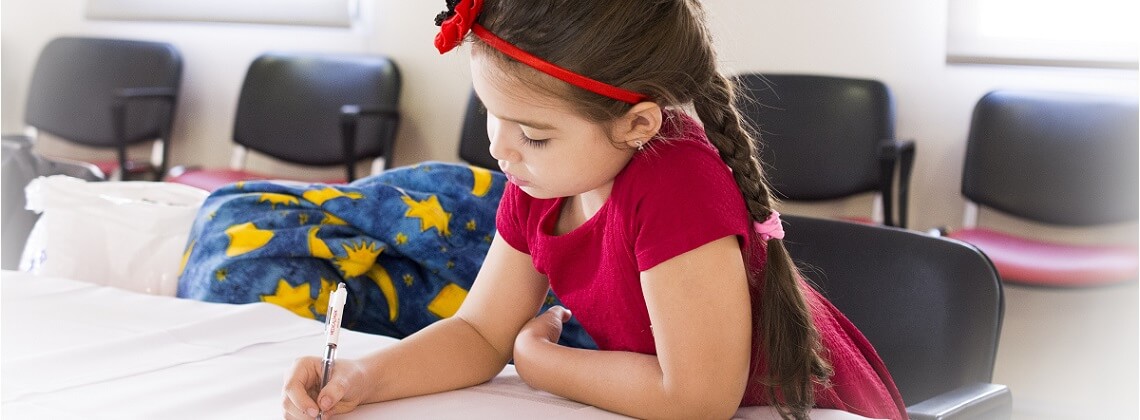
Promoting the well-being of refugee children in the classroom is fundamental; teachers play an influential role in rebuilding their self-esteem, confidence and friendships. Although a refugee learner’s needs may be like those of any migrant child, such as language differences and culture shock, it is also important to remember that some learners may have arrived from a background of traumatic experiences or may have had no formal schooling prior to arrival. Therefore, helping these learners settle and integrate goes beyond just academic support as building confidence will have a direct impact on their English Language development and general attainment
Here are our top 6 strategies on how to support newly arrived refugee learners with their early confidence at school:
6 Teacher strategies for supporting newly arrived refugee learners
1. Preparation for a new arrival
Create a welcoming environment for new learners by showing that diversity is welcomed and appreciated at the school.
This can be achieved by:
- A good classroom display to illustrate a friendly atmosphere – use welcome posters in several languages or display photographs of different countries
- Allocate buddies – it is much easier for refugee pupils to integrate into a new environment when there is someone to show them around, introduce them to their friends and to be an overall support and guide.
- Create familiarity – provide opportunities for children to socialise with others who have the same home language
Jill Bruce (Early years Teacher) puts forward the idea of a home corner that reflects each pupil’s home environment. “I would also add clothes, both everyday wear and traditional/ceremonial clothes. Alongside this, I will also add books reflecting their culture in the area.”
It’s crucial to ensure that a ‘home corner’ or display reflects the culture of all the pupil’s in the classroom. However, some learners may not want to be reminded of the past, especially as they are newly arrived refugee learners, they may not be ready to open up. Instead, a home corner could simply showcase the acceptance of diversity in the classroom without necessarily showcasing the home country of the new arrival.
2. School Routine

(Click here to download poster for free)
Some newly arrived refugee learners may have no previous experience of school, so reinforcing the new school routine is important to build their self-confidence. Ensure that learners gain a sense of authority and routine by demonstrating good behaviour and classroom rules through visual picture cards/posters. This needs to be communicated to learners from when they arrive, in order to make sure their daily school routine is consistent. Be aware that, some behavioural requirements may not always be common in other cultures. Therefore, always confirm with learners that they have understood what is expected of them. If a new learner is continuously being disruptive, it will be a good idea to consider referring them to a school counsellor to determine whether their behavioural problem is derived from something other than a misunderstanding.
3. Independent Learning
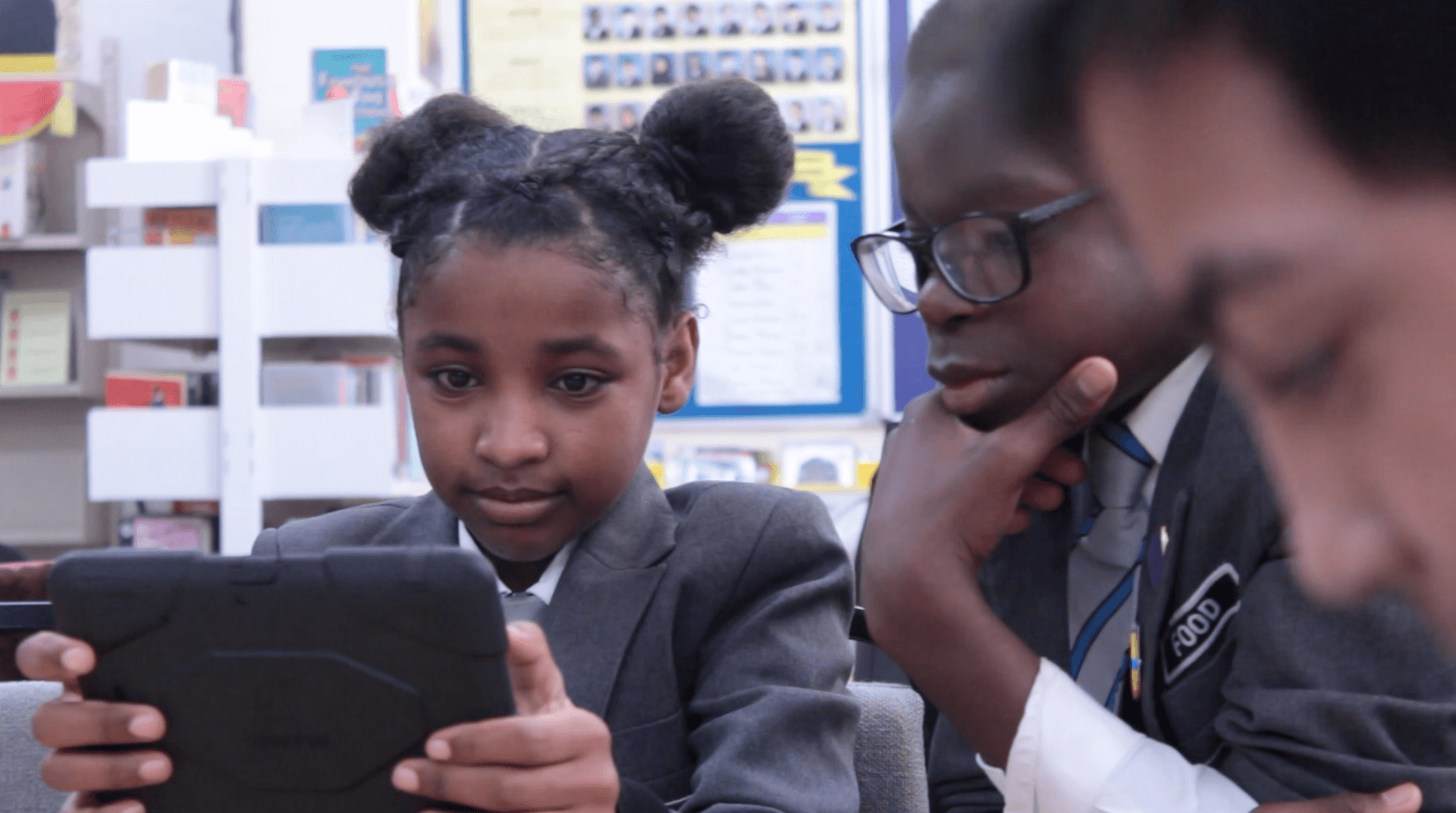
While it is imperative to offer continuous support to a newly arrived refugee learner, independent learning is one of the foundations for developing academic abilities as well as self-confidence.
Sugata Mitra of Newcastle University developed the concept of a ‘self-organised learning environment’ in 1999. In brief, the experimental teaching method consists of encouraging the class to work in groups to answer questions using computers with internet access. Aspects of self-organised learning environments can be implemented into daily lesson plans as this will allow refugee learners enough time to develop socially. Tasks that are orientated around teamwork directly improves self-assurance as a pupil’s confidence increases as their team’s shared effort creates positive outcomes.
Annie (Volunteer English Teacher at CSO Refugee school) implemented the notion of self-learning environments in her class. She says, “This method works by allowing students to research an open question related to their curriculum (English, Maths and Science eg. ‘How Could We Live on Mars?’, ‘Why Do We Have a Skeleton?’) in groups of 3-5 around one computer. They then build a presentation around the topic and present it in front of the rest of the class with a student-led question and answer session afterwards,”
As a result of this teaching method, Annie noted positive results as she says, “we have noticed outstanding improvements in our children’s research and presenting skills- as well as enhanced intellectual curiosity- characteristics key for developing a self-sustaining work ethic,” (Find out more about volunteering opportunities in CSO refugee school in Malaysia)
4. Extra-curricular activities


Encourage newly arrived refugee learners to channel their feelings into extra-curricular activities. Not only will this foster social development but also allow learners to express themselves. Although some pupils may confidently convey their hobbies and interests, some may be a lot more reluctant.
Through your own observation, identify the learner’s strongest skill set and suggest activities that correlate to their strengths. Prosocial activities are good suggestions to put forward as this will allow learners to make some meaning out of their own personal experience by making a difference. This could be very healing to a learner whose own trauma may have inspired them to help others. Activities can include volunteering opportunities such as helping at a community centre, soup kitchens, care homes, bag packing and community gardening.
5. Parental Involvement
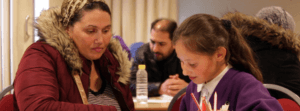
Although teachers play a significant role, it is important to remember that parents also play an equal role when it comes to supporting their child and boosting confidence.
Naturally, parental involvement can encourage a refugee learners desire to learn as they are familiar with their parents and therefore will be more confident to take risks with their learning. Thus, offering extra support to parents can have many benefits. Depending on your school’s usual events, you can support refugee parents and their language-learning by providing them with resources, teaching them about English literature and by including them in community events. A step further could be to hire a family support worker, who will help them out on a more regular basis.
6. Digital Communication
It can be quite a pressuring environment for newly arrived refugee learners to develop in a classroom where they are surrounded by pupils who are already socially advance and are progressing ahead of them. Some learners may benefit from spending some time away from whole class lesson plans and replacing it with interactive and personalised lessons and games so that they can start learning vocabulary and grammar at their own pace. Therefore, parental involvement is essential as learning transcends the classroom!
The FlashAcademy® EAL platform offers learners a smooth transition, allowing them to practice their speaking, listening, reading and writing anywhere and anytime without feeling overwhelmed- making the platform perfect for encouraging home learning!
Anderton Park in Birmingham have been using the platform for over a year now. Assistant Headteacher Claire says “Pupils love it. Having their own app makes them feel special and they can also help their parents learn English at home. Attainment for our pupils with EAL has doubled since we started using FlashAcademy®. The platform has made a tremendous impact for both pupils and teachers.”
The teacher dashboard allows the school to track progress and monitor usage while allowing teachers to customise and personalise learning for each EAL learners’ individual needs as the app contains over 30 home languages.
Remember, every child is unique and will require different support depending on their stage and individual ability. There is no time limit to a refugee learner’s development…patience is key!
We hope you found this guide on how to successfully support newly arrived refugee learners and build their confidence!
If you want to share solutions and ideas concerning EAL or want to feature on our next blog, please join our EAL SUCCESS group and get involved! Thank you to all the teachers who have shared their ideas with us already!
Interested in all things EAL? Check out our top 5 tips for supporting parents of newly arrived EAL pupils! If you are looking for free EAL resources for your school, why not visit our resources page?
